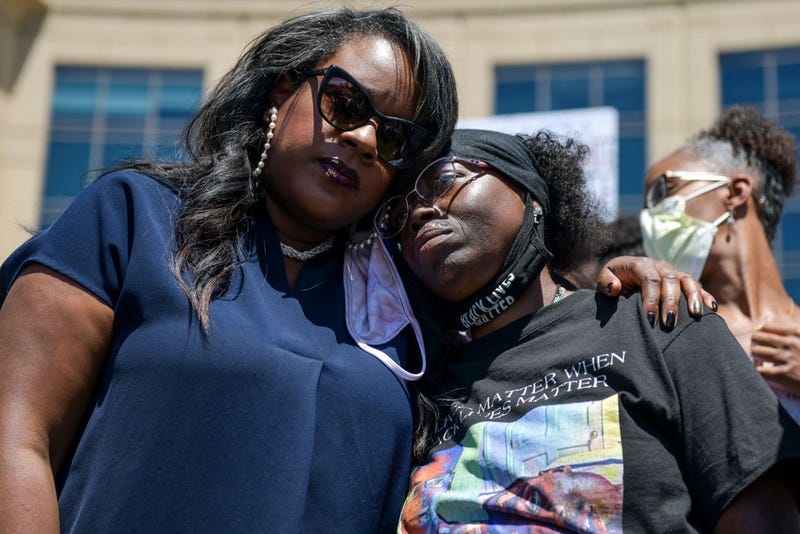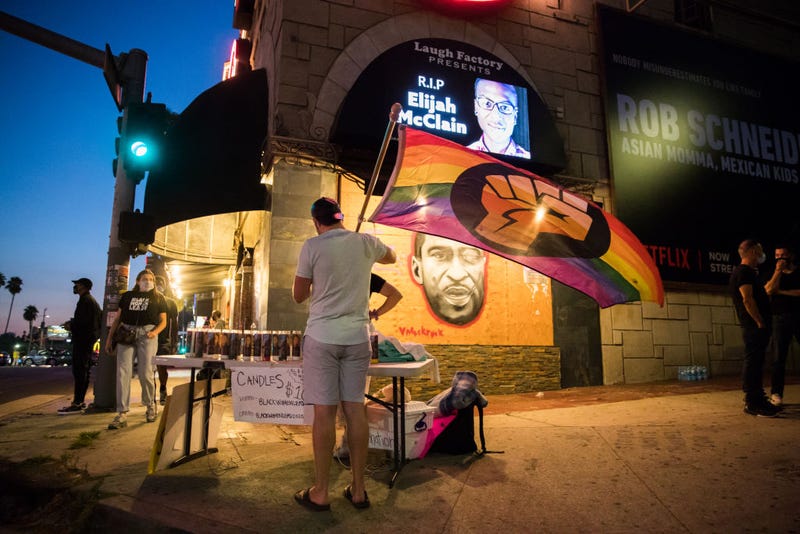
Elijah McClain, a Black 23-year-old massage therapist, died days after police put him in a carotid hold and injected him with ketamine in 2019.
This week, Aurora, Colo., agreed to pay his family $15 million.
This payment will settle a civil rights lawsuit filed by McClain’s family, CNN reported. While the settlement was announced in October, it wasn’t finalized until Friday after a mediation hearing with the family in U.S.
District Court.
As McClain was walking home from a convenience store on Aug.
24, 2019, someone called 911 to say that he “looked sketchy” because he was wearing a ski mask and waving his arms, according to The New York Times.
When the police arrived, they struggled to handcuff McClain.
Officers brought him to the ground and put the chronic asthmatic in a carotid hold, a move that restricts blood flow to the brain to induce unconsciousness. This hold has since been banned by the department.
McClain vomited several times after officers restrained him.
“I’m sorry, I wasn’t trying to do that, I can’t breathe correctly,” he told them.
Medical responders arrived after around 15 minutes and paramedics injected McClain with ketamine, a powerful sedative. On the way to the hospital, he went into cardiac arrest.
Earlier this year, an independent panel determined that officers stopped McClain without justification and escalated their use of force. It also found that the amount of ketamine used to sedate McClain was suitable for a person weighing 190 pounds, while he weighed 140 pounds.
Around a week after the incident, McClain died.
According to The New York Times, it is unclear what exactly caused McClain to go into cardiac arrest, and an autopsy report by the Adams County coroner said his cause of death was “undetermined.” It said McClain could have died of natural causes, a homicide related to the carotid hold, or an accident.
“No amount of money can change what happened or erase the pain and heartbreak experienced by the family over his loss,” Aurora City Manager Jim Twombly said in a statement issued to CNN about the lawsuit. “The settlement is an important step in moving forward with the city's ‘New Way’ plan to restore the community's trust in public safety, while avoiding a protracted legal process that does not serve the best interests of the city or the family.”
To pay the $15 million, Aurora will use $5 million out of the city's general fund and the other $10 million will be covered by the city's excess liability insurance policy. In July, the Aurora City Council approved the $15 million payout.
Last month attorneys for McClain’s mother, Sheneen McClain, announced the case had been settled in principle, effectively resolving all claims in the federal civil rights case.
“Ms. McClain would return every cent for just one more day with her son,” said her attorneys. “There will be an allocation hearing in the near future to determine the distribution of the settlement between Ms.
McClain, who raised Elijah as a single parent, and the biological father.”
Colorado Gov. Jared Polis announced a reexamination of the case last year, after protests and pressure from an online petition that had more than 5 million signatures as of Saturday. Colorado Attorney General Phil Weiser was appointed as special prosecutor. He opened a grand jury investigation into the case in January.

A Colorado grand jury then indicted three police officers and two fire department paramedics involved in McClain's death in September. They were all indicted on charges of manslaughter and criminally negligent homicide as part of a 32-count indictment.
Through a 14-month investigation launched by the Colorado Attorney General's Office, it became clear that the Aurora police department “had a pattern of practicing racially biased policing and excessive force and had failed to record legally required information when interacting with the community,” said CNN.
This week, the city and the state also reached an agreement on the terms of a consent decree to resolve Aurora Police Department and Aurora Fire Rescue issues related to racially biased policing, use of force, documentation of stops, and use of ketamine and other chemical restraints that were identified in a September “Patterns and Practices” report.
McClain’s death is one of several that brought media attention to police brutality and racism. Other cases include the murder of Black man George Floyd by a white Minneapolis, Minn., cop and the killing of Black woman Breonna Taylor by police in Louisville, Ky.
Lawsuits were also filed after Floyd and Taylor’s deaths. Floyd’s family received a $27 million and Taylor’s family received a $12 million payment.


